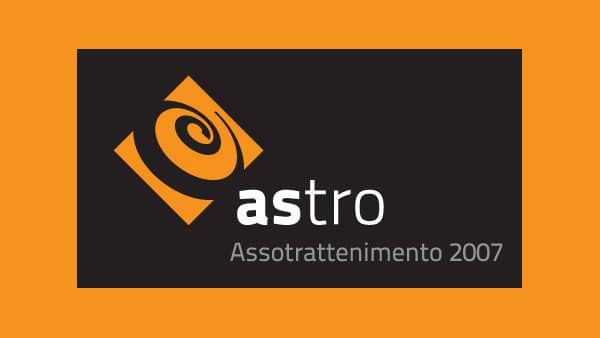The Municipality of Crema, as the leading body in the social sphere of Crema, has returned to dealing with the regulation of the gaming offer, promoting the approval of a single regulation which provides for greater restrictions in terms of distances from sensitive places and in terms of time slots.
ASTRO, for this reason, has decided to send a letter to the Municipality of Crema containing some reflections on the matter and which we publish below:
“As an association representing legal gaming operators (member of Confindustria SIT) we learned from press reports that it was approved within the 48 municipalities of the Cremasco Social Area - a municipal regulation regarding games which will replace the previous municipal measures adopted on the matter.
The single regulation would provide for a ban on the installation of gaming machines in premises located in less than 500 meters from sensitive places, such as schools, places of worship, sports facilities, structures residential, semi-residential and accommodation for protected categories, oratories and other meeting centres youth. Furthermore, new slot rooms or new machines in existing premises will not be able to be located within 100 meters of banks, post offices or ATMs, loan and pawnbrokers, businesses of purchasing gold, silver and precious objects. Regarding the time limits for operation of the slots and the opening of the rooms will be decided by order from each individual body, but approximately they will go from 10.00 to 13.00 and from 18.00 to 23.00.
We therefore wish, hereby, to submit to the SS.VV some reflections in this regard. We note, first of all, that the ban on new installation of appliances at a distance less than 500m from the sensitive places indicated in the new regulation is already provided for by the art. 5 of the regional law no. 8/2013.
If, however, the municipal regulation were to be interpreted in the sense of obliging the owners of the establishments, located at a distance of less than 500m from sensitive places, to remove the devices already present, the same would be illegitimate as it is in conflict with the provision mentioned above.
As regards, however, the novelty represented by the introduction of further sensitive places (compared to those indicated by regional law) such as bank branches, post offices, ATMs and agencies of loans and pawning, exercises for the purchase of gold, silver and precious objects, we would like to point out that, if it is It is true that the regional law allows the Municipalities to introduce new sensitive places, at the same time, however, establishes that this faculty can be exercised to meet specific needs such as safety urban, problems related to traffic, noise pollution and disturbance of public peace (art. 5, paragraph 2, Lombardy LR no. 8/2013).
These needs do not appear to be attributable to the new "sensitive places" added by the Regulation under exam.
What we intend, however, to draw your attention to is the fact that, in implementation of the art. 15 of the enabling law n. 111/2023, the Government has already started the reform of land-based gaming, in the process of training, consultation - already underway - with the Conference of the Regions and the EE.LL is expressly foreseen. from which a uniform regulation must arise, at national level, both in terms of timetables of legal gaming activities and in terms of territorial dislocation, with respect to certain places sensitive, of the exercises that carry out these activities.
It therefore appears completely untimely to proceed with the adoption of a new Regulation (which would have a significant impact on the sustainability of businesses) precisely while a process is underway of reform whose contours may already emerge in the coming months. In this regard, we inform you which has already started the work of the technical table between the Government and Regions, PA, Anci and Upi.
In more general terms we also note that the rationale of the rules that introduce restrictions on placement of gaming activities below a certain distance from places defined as "sensitive" should be to avoid the proximity of gaming offering activities from places that, for them nature, are intended to be frequented mainly by people of different ages or particulars personal conditions, are to be considered particularly vulnerable to the phenomena of dependence.
Well, it is not clear how this characteristic can be attributed to sports facilities, to places of worship, nursery schools, nursery schools (unless you think that children and newborns can go and play slots) while, despite the doubts raised by the very effectiveness of the “distance meter”, the recognition of the nature of places sensitive to schools may make sense middle and high schools as well as SERDs.
About the effectiveness of the distance meter as a tool for preventing addiction to game, on which there is - however - no scientific evidence, as well as appearing unlikely to us that a person suffering from addiction may be discouraged by the idea of walking one hundred meters furthermore, finding a place to play seems completely anachronistic and unrealistic to us the use of such a tool in the age of digital and artificial intelligence.
In fact, starting from the pandemic period, we have witnessed a trend of exponential growth in gaming online (exempt from any time and/or territorial restrictions), the collection of which, according to the latest survey by the Customs and Monopolies Agency referring to 2022, has already largely exceeded that of the land-based game.
Compared to this last data and the trend it denotes, the forecast of a large number of places sensitive - unanchored to a common rationale - and stringent time limitations, far from being able to explain any effectiveness in the prevention of gambling addiction would have, as its only effect, that of further benefiting online gaming, thus putting the jobs of women at risk people employed in the land-based gaming sector (whose entrepreneurial fabric is composed, for the largely by Italian SMEs), a sector which, moreover, precisely due to the strong growth of gaming channels online, is already suffering strong economic and employment consequences. An empirical data that demonstrates the total ineffectiveness of the so-called "distance meter" in the prevention of gaming addiction is offered by the experience of LR 5/2013 of Emilia-Romagna, which, for effect of the expected application of this tool also to activities already existing at the moment of its entry into force, led to the closure of 45% of the existing amusement arcades in the area Emilian. Nonetheless, during the period of validity of this law the number of people assisted for gambling addiction it increased by 143% (source: Emilia Romagna Region institutional website https://salute.regione.emilia-romagna.it/notizie/regione/2024/marzo/gioco-dazzardo-dalla-regione-oltre-3-2-milioni-di-euro-alle-aziende-sanitarie-dell2019emilia-romagna-per-iniziative-di-contrasto-alla-ludopatia#).
As regards, however, the determination of the time slots as indicated in your document Regulation, we point out that, as expected, in addition to not being in line with the proposals put forward by the representatives of the Conference of Regions in the technical table on physical reorganization (which considered it reasonable to allow gaming activity for 18 hours a day), would determine, especially in businesses where gaming is the main activity, there are strong employment implications.
In fact, their "breaking up" throughout the day would require the owners of the theaters to readjust shifts in accordance with the legislative and contractual regulations that regulate working hours, with consequent need to reduce working hours (transforming them from full time to part time) or dismiss some of the staff."











